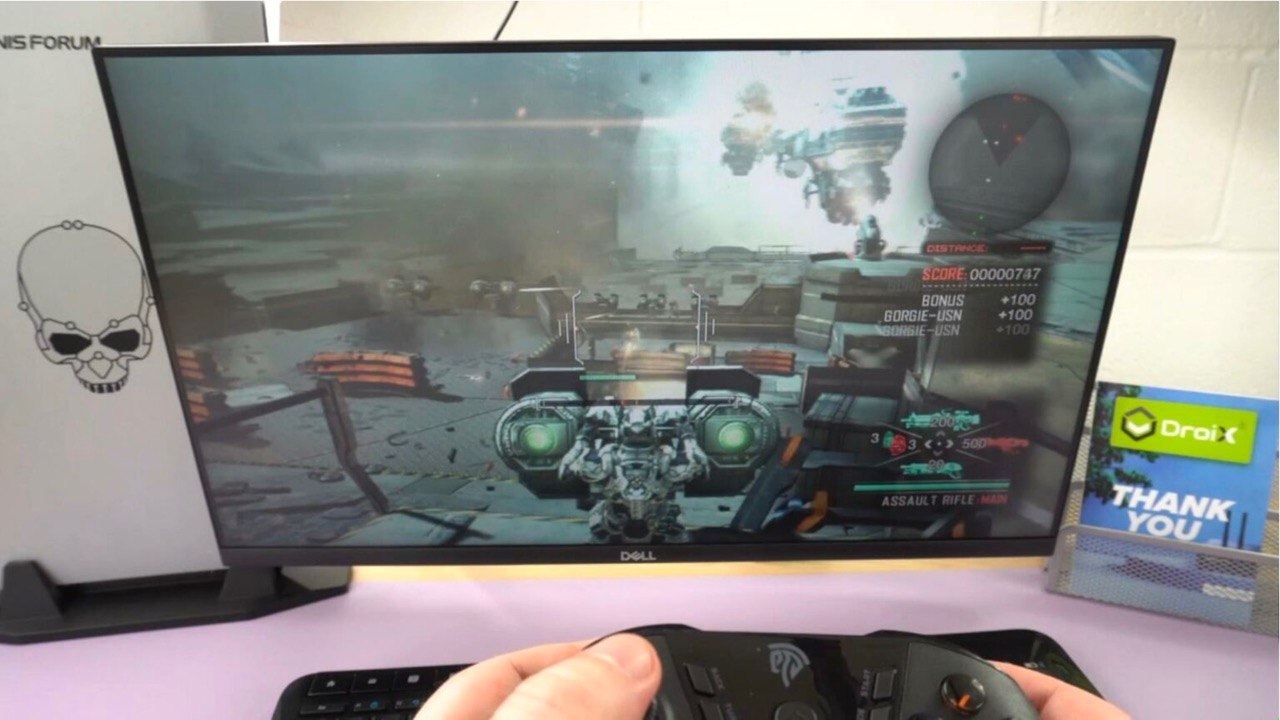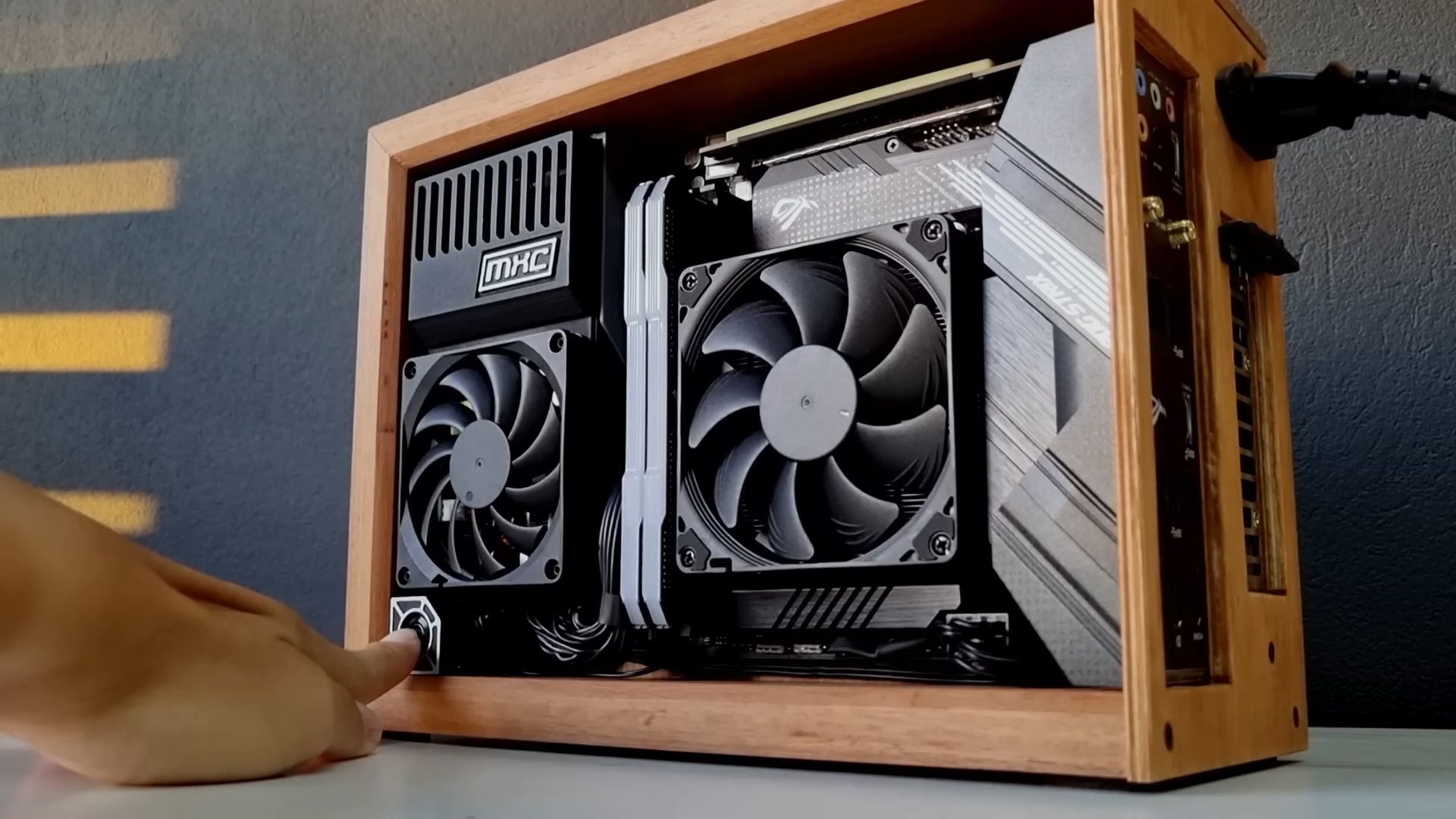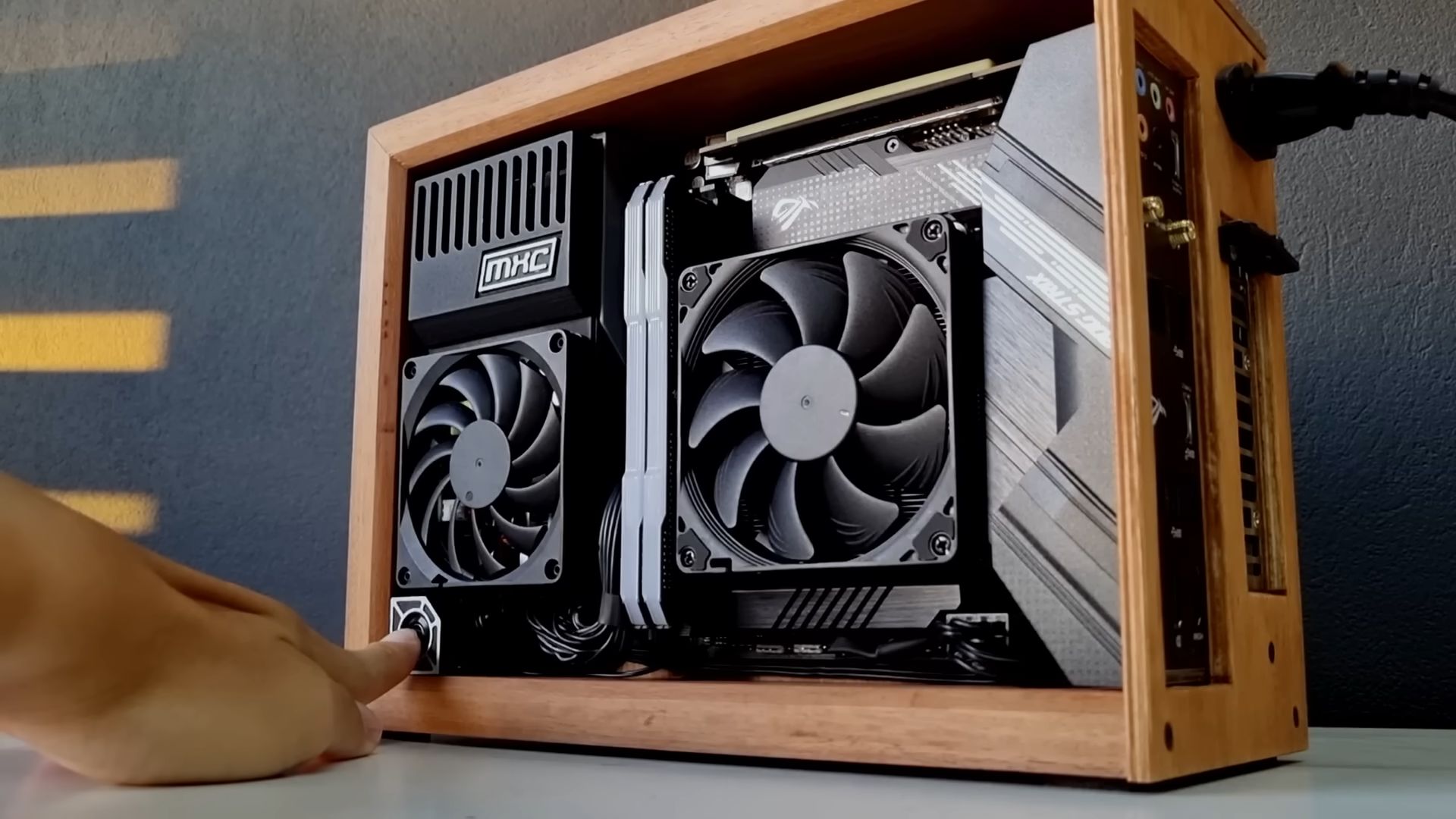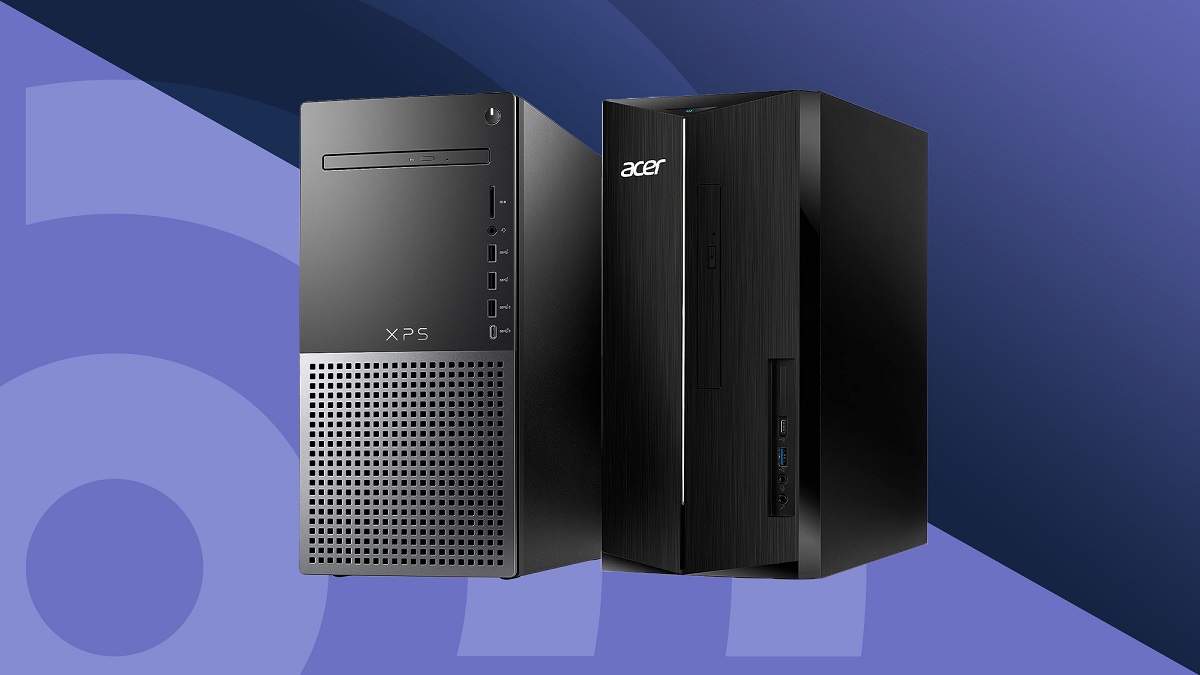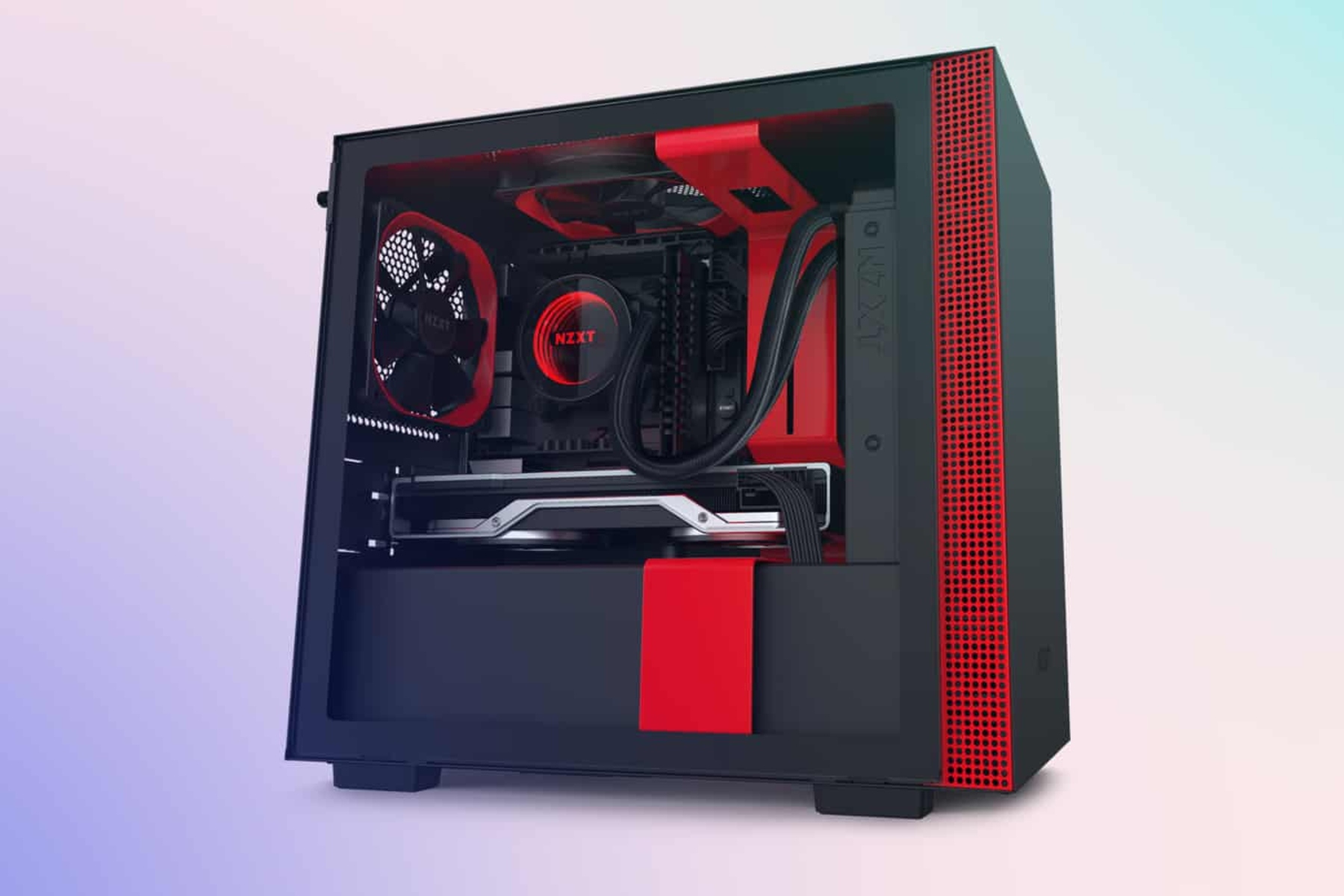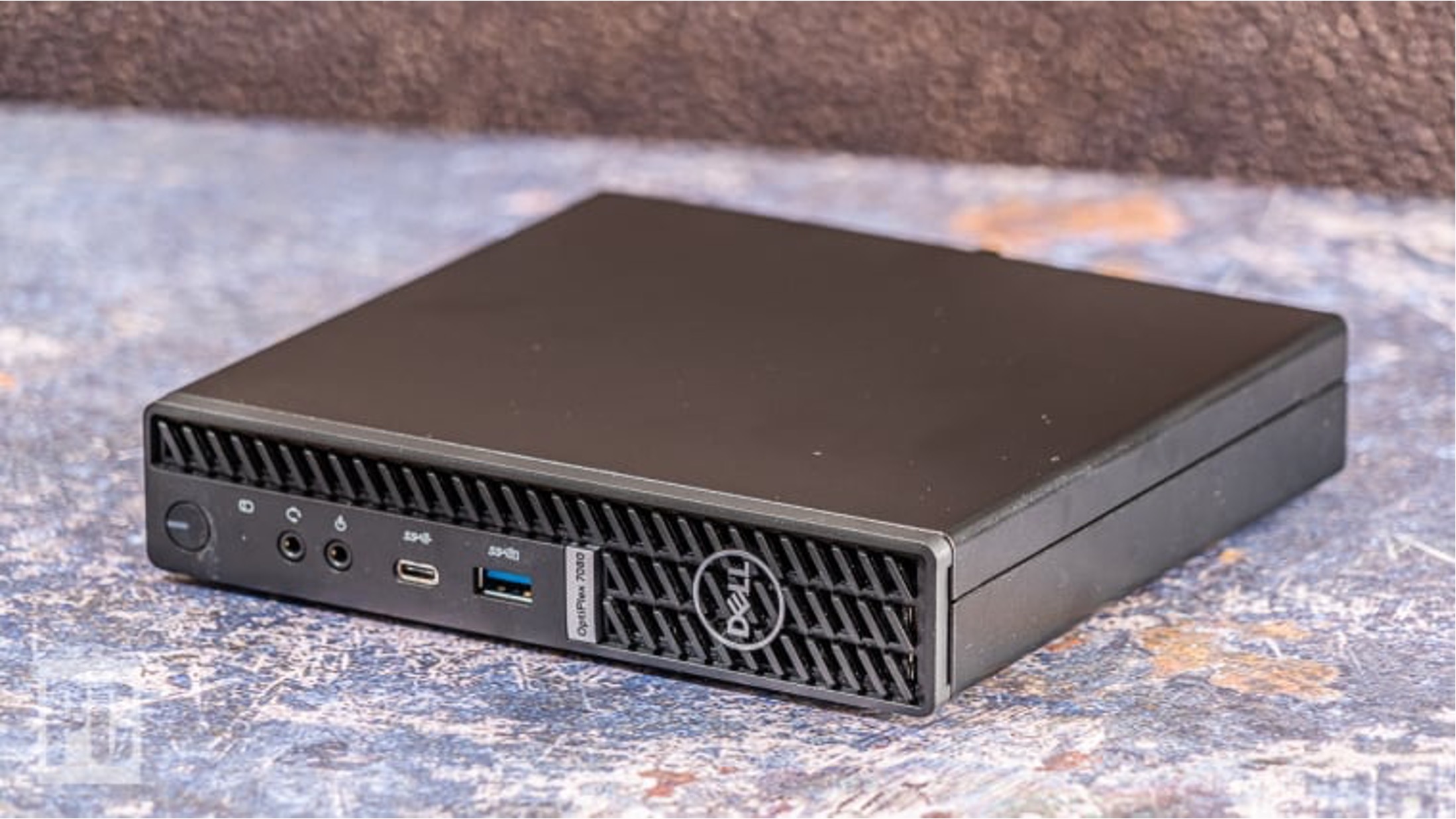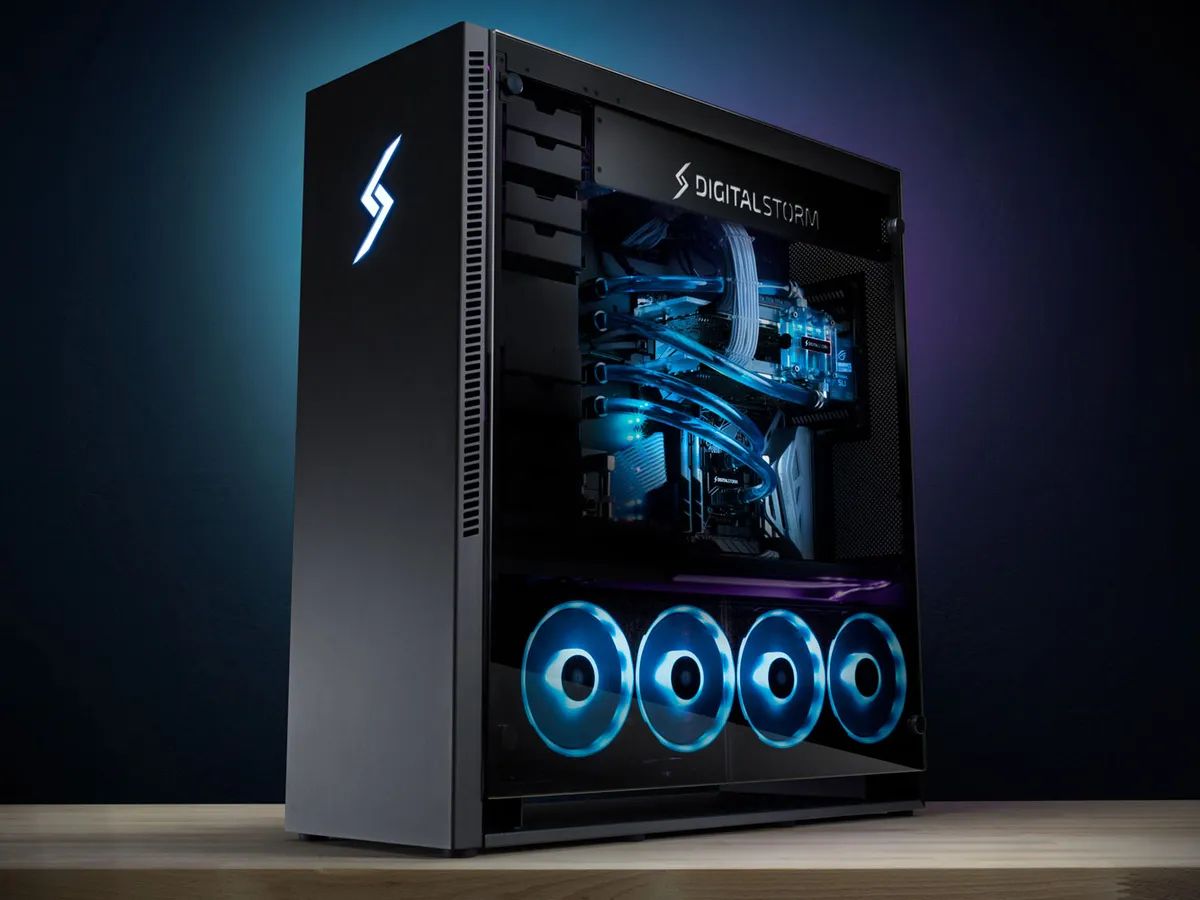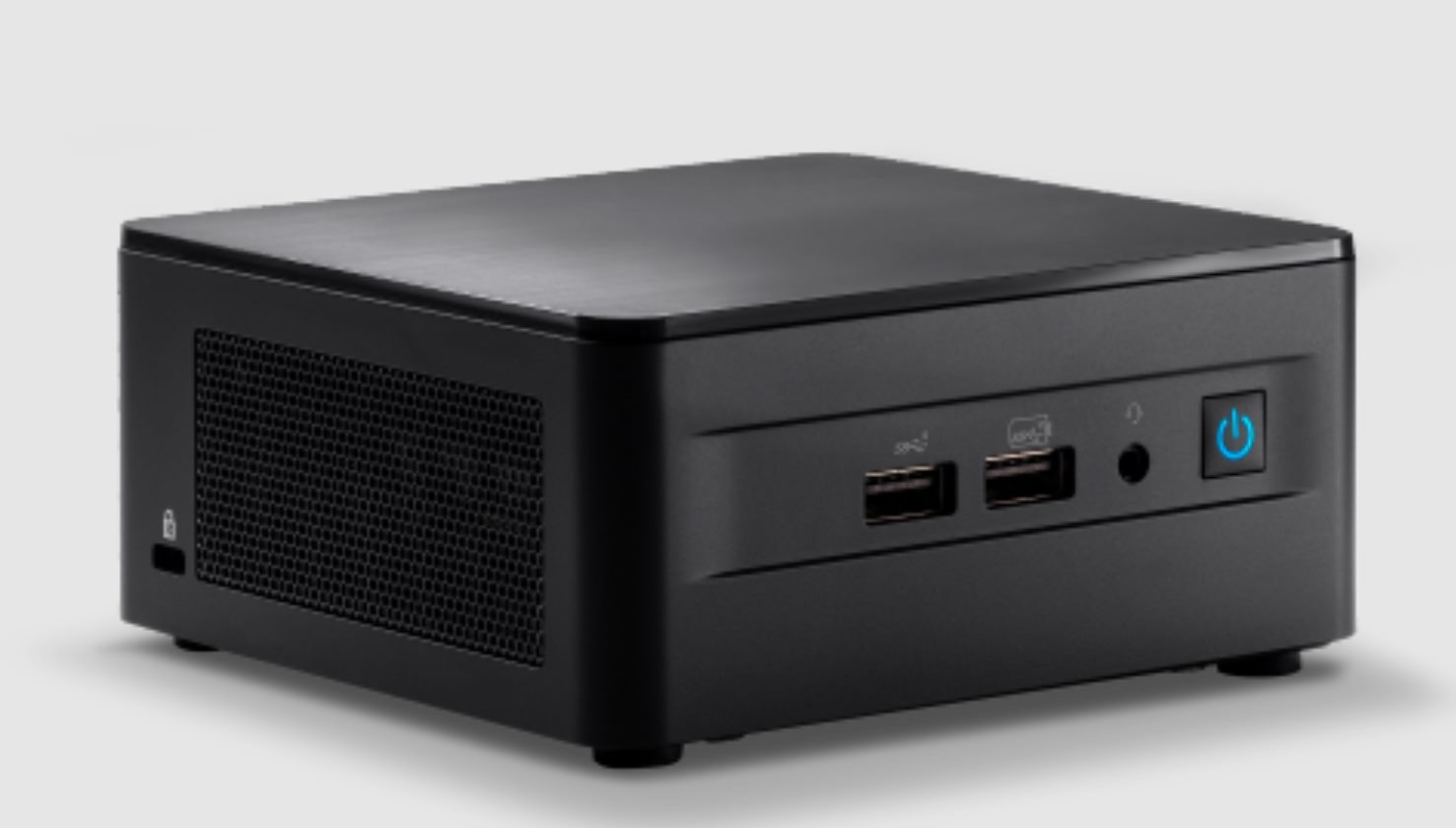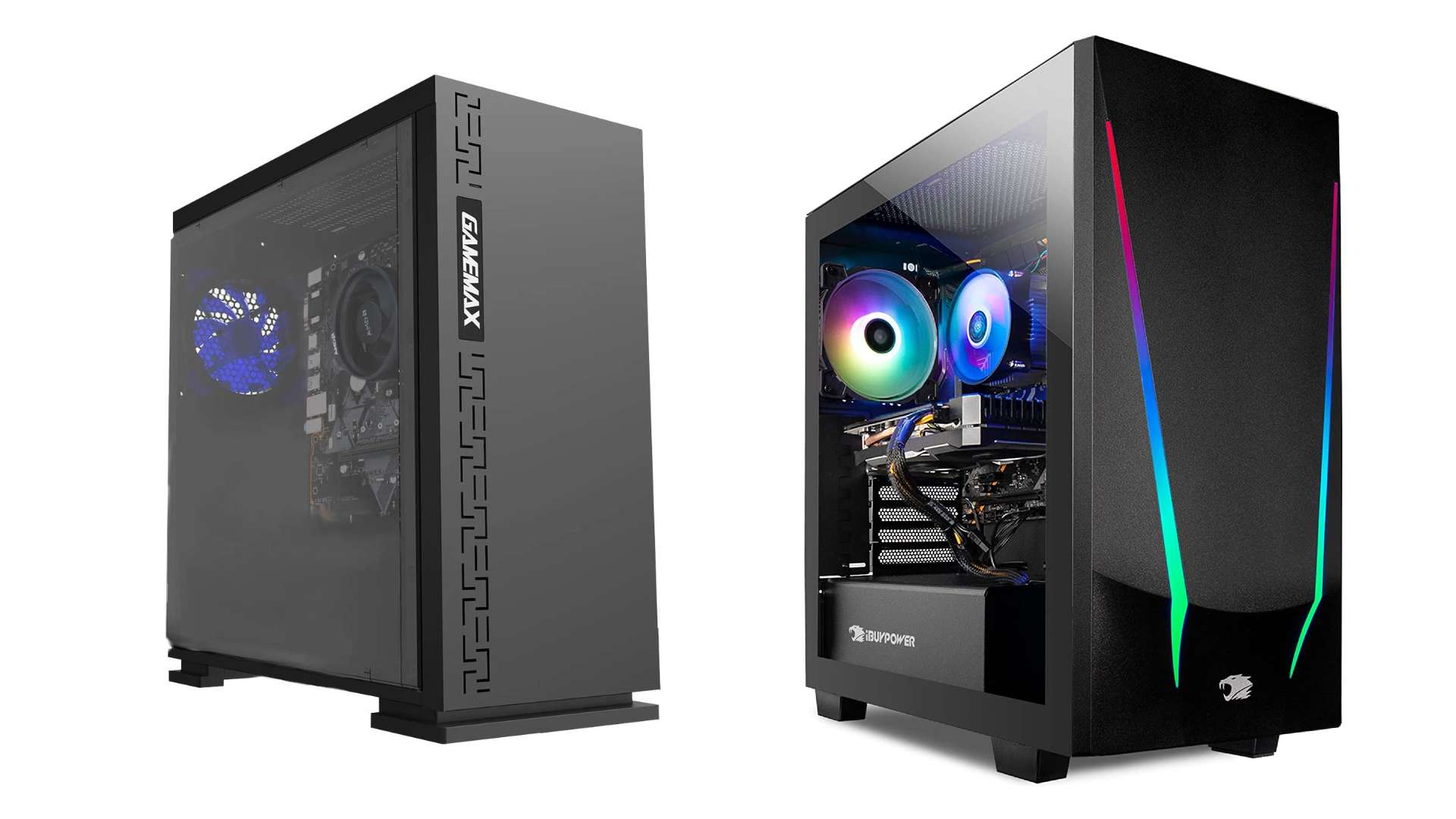Introduction
When it comes to gaming, having the right equipment can make all the difference. While many gamers opt for full-size desktops or laptops, there is another option that offers a compact and portable gaming experience – mini PCs. These small form factor computers pack a powerful punch, providing gamers with the performance they need in a portable and space-saving design.
Mini PCs are becoming increasingly popular among gaming enthusiasts due to their versatility and performance capabilities. Whether you’re a casual gamer looking for a convenient setup or a hardcore gamer craving portability without compromising on power, a mini PC could be the ideal solution.
One of the biggest advantages of mini PCs for gaming is their size. These compact devices take up minimal space, making them ideal for small living spaces, dorm rooms, or when you want to set up a gaming station in a different room. With their small footprint, they can easily fit on a desk or even attach to the back of a monitor, saving valuable space and reducing clutter.
Despite their small size, mini PCs are equipped with powerful processors and graphics cards, ensuring smooth gameplay and immersive visuals. Many mini PCs are available with the latest Intel or AMD processors, providing the necessary processing power to handle demanding games without any lag or slowdowns. Additionally, they often feature dedicated graphics cards, such as NVIDIA GeForce or AMD Radeon, to enhance the gaming experience with crisp and realistic graphics.
Another important factor to consider when choosing a mini PC for gaming is the amount of memory and storage it offers. Gaming requires sufficient RAM and storage space to run smoothly and store games and game files. Most mini PCs come with ample memory, with options ranging from 8GB to 32GB, allowing for seamless multitasking and smooth performance. Additionally, the storage capacity varies, with options for traditional hard drives or faster solid-state drives (SSDs) that provide faster loading times and enhanced overall performance.
Processor and Graphics
When it comes to gaming, having a powerful processor and graphics card is crucial for smooth gameplay and immersive visuals. Mini PCs designed for gaming often come equipped with high-performance processors and dedicated graphics cards to deliver an exceptional gaming experience.
One of the key factors to consider when choosing a mini PC for gaming is the processor. The processor is responsible for handling the calculations and instructions necessary for running games smoothly. It determines the speed and overall performance of the system. Most gaming mini PCs feature powerful processors from either Intel or AMD, such as Intel Core i5 or i7, or AMD Ryzen processors. These processors offer multiple cores and high clock speeds, allowing them to handle intense gaming sessions without any lag or performance issues.
In addition to the processor, the graphics card is another crucial component for gaming. The graphics card, also known as the GPU (Graphics Processing Unit), is responsible for rendering and processing the graphics in games. It plays a vital role in delivering smooth frame rates and high-quality visuals. Gaming mini PCs often come equipped with dedicated graphics cards from leading manufacturers like NVIDIA or AMD. These cards, such as NVIDIA GeForce GTX or AMD Radeon RX series, offer excellent graphics performance, enabling gamers to enjoy their favorite games with stunning visuals and smooth gameplay.
When choosing a mini PC for gaming, it’s important to consider the specific requirements of the games you intend to play. Some games have higher graphics demands and may require a more powerful graphics card. Additionally, if you plan on running resource-intensive tasks alongside gaming, having a multi-core processor and a powerful graphics card will ensure smooth performance and eliminate any potential bottlenecks.
Overall, a mini PC with a powerful processor and dedicated graphics card will provide the necessary horsepower for a satisfying gaming experience. The combination of a high-performance processor and graphics card will allow you to enjoy games at high settings with smooth frame rates and stunning visuals.
Memory and Storage
When it comes to gaming, having sufficient memory (RAM) and storage is essential for smooth gameplay and quick load times. Mini PCs designed for gaming typically offer ample memory and storage options to ensure optimal performance.
Memory, often referred to as RAM (Random Access Memory), plays a crucial role in gaming. It allows the computer to access and store data that is actively being used by the CPU. The more memory a gaming mini PC has, the better it can handle multitasking and run resource-intensive games without any lag or performance issues. Most gaming mini PCs come with a minimum of 8GB of RAM, which is sufficient for most games. However, if you plan on running multiple programs or highly demanding games, opting for a mini PC with 16GB or even 32GB of RAM will provide a smoother gaming experience.
Aside from memory, storage is another important consideration for gamers. The type and capacity of storage can significantly affect game load times and overall system performance. In general, gaming mini PCs offer multiple storage options, including traditional hard disk drives (HDDs) and solid-state drives (SSDs).
Traditional HDDs provide ample storage capacity at a more affordable price point. They are suitable for storing large game libraries along with other multimedia files. However, HDDs are slower compared to SSDs when it comes to read and write speeds, resulting in longer load times for games and slower overall system performance.
Solid-state drives (SSDs), on the other hand, offer faster data access speeds, resulting in significantly reduced load times for games. They are known for their quick boot-up times and snappy responsiveness. SSDs are available in various capacities, typically ranging from 128GB to 1TB or more. While SSDs tend to be more expensive per gigabyte compared to HDDs, the improved performance and faster load times make them a worthwhile investment for gaming.
For gamers who require a large storage capacity along with the benefits of faster loading times, some gaming mini PCs offer a combination of both HDD and SSD options. This allows for the best of both worlds, with ample space for storing games and media files on the HDD, while the SSD enhances system responsiveness and decreases load times for frequently used games or applications.
Overall, choosing a gaming mini PC with sufficient memory and storage capacity will ensure smooth performance and an enjoyable gaming experience. Consider the types of games you play and your storage needs before making a decision, as having the right combination of memory and storage is essential for a seamless gaming setup.
Ports and Connectivity
When it comes to gaming, having the right ports and connectivity options on your mini PC is essential for a seamless gaming experience. The availability of various ports and connectivity features allows you to connect and use a wide range of gaming peripherals, accessories, and external devices.
Most gaming mini PCs come equipped with a variety of ports to accommodate different needs. These may include USB ports, HDMI ports, DisplayPort, Ethernet ports, audio jacks, and more. USB ports are particularly important for gamers, as they allow you to connect gaming peripherals such as keyboards, mice, controllers, and external storage devices. Having multiple USB ports on a mini PC ensures that you have enough slots to connect all your gaming accessories without the need for a USB hub.
HDMI and DisplayPort are vital for connecting your mini PC to a gaming monitor or TV. These ports facilitate high-definition video output, allowing you to fully enjoy your games on a larger screen with crisp visuals. It’s worth considering the resolution and refresh rate supported by the mini PC and the connected display to ensure optimal gaming experience.
Ethernet ports are essential for online gaming, as they offer a more stable and reliable internet connection compared to Wi-Fi. Having an Ethernet port on your gaming mini PC ensures low latency and reduces the risk of experiencing lag during online gameplay. However, if you prefer wireless connectivity, it is important to check if the mini PC is equipped with Wi-Fi capabilities or has the option to add a Wi-Fi adapter.
Audio jacks or optical audio ports are also crucial for gamers who want to connect their mini PC to a surround sound system or gaming headset. These ports enable high-quality audio output, enhancing the immersion and overall gaming experience.
Additionally, the presence of Bluetooth connectivity on a gaming mini PC allows you to connect wireless gaming peripherals, such as controllers or headphones, without the need for additional dongles or adapters.
When choosing a gaming mini PC, it’s important to consider the specific ports and connectivity options that are essential for your gaming setup. Make sure to check if the mini PC has the necessary ports to connect your preferred gaming peripherals and external devices. Having a wide range of connectivity options ensures that you can easily integrate your mini PC into your gaming ecosystem without any limitations or compatibility issues.
Cooling and Noise
Efficient cooling is crucial for maintaining optimal performance and longevity of a gaming mini PC. As gaming sessions often generate a significant amount of heat, proper cooling mechanisms are necessary to prevent overheating and ensure a stable gaming experience. Additionally, noise levels can impact the overall enjoyment of gaming, so it’s important to consider the cooling and noise aspects when choosing a mini PC for gaming.
Gaming mini PCs typically incorporate various cooling solutions to dissipate heat effectively. These may include fans, heat sinks, and even liquid cooling systems. Fans are commonly used to circulate air and remove heat from the internal components of the mini PC. Multiple fans can provide efficient airflow and help keep temperatures within acceptable limits, especially during intense gaming sessions. Larger heat sinks help to absorb and dissipate heat from the processor and graphics card, ensuring that these components remain cool under pressure.
In some cases, gaming mini PCs may feature liquid cooling systems. These systems use a combination of water blocks, radiators, and pumps to dissipate heat efficiently. Liquid cooling is known for its ability to provide excellent cooling performance while producing less noise compared to traditional air cooling. However, mini PCs with liquid cooling can be more expensive and require proper maintenance and occasional refilling of the cooling liquid.
Noise levels are an important consideration for gamers, as excessive fan noise can be distracting and diminish the gaming experience. Gaming mini PCs often come with noise-reducing features such as fan speed controls, acoustic padding, or specialized fan designs to minimize operational noise. When selecting a mini PC, it’s wise to check for noise level specifications or look for user reviews to ensure that the system operates quietly, even under demanding gaming conditions.
Proper cooling not only keeps the internal components running at optimal temperatures but also prevents performance throttling due to thermal constraints. This ensures that the mini PC can maintain consistent performance, even during extended gaming sessions. Efficient cooling also contributes to the longevity of the components, as excessive heat can degrade the performance and lifespan of the hardware.
Ultimately, when choosing a gaming mini PC, it’s important to consider the cooling capabilities and noise levels to ensure that your gaming experience remains enjoyable and uninterrupted. Look for systems with efficient cooling solutions and noise-reducing features to strike the right balance between optimal performance and a quiet gaming environment.
Size and Portability
One of the advantages of gaming mini PCs is their small and compact size, making them an appealing choice for gamers who value portability and space-saving designs. Mini PCs offer a convenient and flexible gaming solution, especially for those who frequently travel or have limited physical space.
Gaming mini PCs are significantly smaller than traditional desktop towers or even gaming laptops. They have a compact form factor that allows them to fit easily on a desk, in a backpack, or even attach to the back of a monitor using VESA mounts. Their small footprint means they take up minimal space, making them ideal for cramped gaming setups, dorm rooms, or small living spaces.
The portability of gaming mini PCs allows gamers to set up their gaming station wherever they desire. Whether you’re visiting a friend’s house, going on a gaming tournament, or simply want to move your gaming setup to a different room, mini PCs offer the flexibility to do so without the need for heavy and bulky equipment.
Despite their small size, mini PCs are still capable of providing powerful gaming performance. Many gaming mini PCs come equipped with high-performance processors, dedicated graphics cards, and ample memory to handle demanding games. This means you don’t have to sacrifice performance for portability. You can enjoy the same level of gaming experience as with a larger gaming system, but with added convenience and flexibility.
Furthermore, gaming mini PCs often come with a range of connectivity options, including USB ports, HDMI ports, and audio jacks, allowing you to connect peripherals and accessories seamlessly. This makes mini PCs an all-in-one solution for portable gaming, eliminating the need for additional dongles or adapters.
While mini PCs offer portability, it’s important to consider the specific dimensions and weight of the device. Some mini PCs are more travel-friendly than others, with lighter and more compact designs. Consider your mobility needs and the intended usage scenarios when selecting a mini PC for gaming.
In summary, gaming mini PCs combine the benefits of compact size, portability, and powerful gaming performance. With their smaller footprint, these mini PCs are suitable for gamers who prioritize space-saving solutions and require the flexibility to set up their gaming station anywhere. Whether you’re a frequent traveler, have limited space, or simply prefer a more portable gaming setup, mini PCs offer a convenient and versatile gaming solution without compromising on performance.
Operating System and Compatibility
When choosing a gaming mini PC, one important consideration is the operating system (OS) it runs on. The OS not only determines the user interface and overall user experience but also dictates the compatibility with gaming software and hardware.
Windows is the most widely used operating system for gaming, and the majority of gaming mini PCs come pre-installed with Windows 10. Windows provides a vast library of games and gaming software, making it a popular choice among gamers. Additionally, Windows offers excellent hardware compatibility, ensuring that gaming accessories and peripherals seamlessly integrate with the system. Most gaming software and platforms, such as Steam, are primarily developed for Windows, further enhancing its popularity among gamers.
However, there are other operating systems to consider as well. Some gaming mini PCs run on Linux, an open-source operating system. Linux offers a different user experience and is known for its stability and security. While the gaming library for Linux is growing, it may not have as wide a selection of games compared to Windows. Compatibility with gaming software and hardware can also be more limited on Linux, so it’s important to ensure compatibility before choosing this option.
Another alternative is macOS, the operating system used by Apple Mac computers. Some gaming mini PCs are designed to run macOS, providing access to a different set of games and gaming software. However, compared to Windows, the gaming library for macOS is more limited. Additionally, gaming hardware compatibility can also be an issue, as many gaming peripherals are primarily designed for Windows compatibility.
It’s also worth considering the compatibility of the gaming mini PC with gaming consoles, such as PlayStation or Xbox. Some mini PCs can be configured to support console gaming, allowing you to connect and play games from your favorite console on your mini PC. This provides added flexibility and versatility to your gaming setup, allowing you to enjoy games from different platforms on a single device.
Ultimately, the choice of operating system depends on your gaming preferences, software compatibility, and hardware requirements. If you prefer a wide selection of games and software with excellent hardware compatibility, Windows is a safe choice. However, if you prefer the stability and security of Linux or the ecosystem of macOS, there are gaming mini PCs available with those operating systems as well. Consider your gaming needs and preferences to ensure the chosen operating system aligns with your gaming goals.
Price and Value
When it comes to choosing a gaming mini PC, price and value are important factors to consider. The price of a gaming mini PC can vary greatly depending on the specifications, brand, and additional features offered. It’s essential to find a balance between the price and the value provided by the mini PC to ensure a satisfying gaming experience without breaking the bank.
Gaming mini PCs are available at various price points, catering to different budgets and gaming requirements. Entry-level gaming mini PCs are often more affordable, but they may have lower-end specifications and may not be able to handle the latest and most demanding games at high settings. However, they can still provide a decent gaming experience for casual gamers or those on a tighter budget.
Mid-range gaming mini PCs offer a good balance between price and performance. They typically feature more powerful processors, dedicated graphics cards, and ample memory and storage capacities. These mini PCs can handle most games and provide smooth gameplay at medium to high settings. They are suitable for gamers who want a more immersive experience without splurging on top-of-the-line components.
At the high end, gaming mini PCs offer top-tier performance and cutting-edge features. These mini PCs often come equipped with the latest generation processors, flagship graphics cards, and ample memory and storage options. They deliver exceptional gaming performance for even the most demanding games and can handle tasks such as video editing or content creation. However, they come at a higher price point, making them more suitable for avid gamers or professionals who require the utmost performance.
When considering the price and value of a gaming mini PC, it’s important to look beyond the initial cost. Factors such as the longevity of the components, warranty, customer support, and upgradeability should also be taken into account. A gaming mini PC with a higher upfront cost but with a longer lifespan and better customer support may yield better value in the long run.
Additionally, consider the specific features and specifications that are important to you as a gamer. Do you need a certain amount of RAM or storage space? Do you require a high-end graphics card for playing the latest AAA games? Keep in mind that some mini PCs may offer customization options, allowing you to select the desired components and tailor the system to fit your gaming needs.
In summary, when evaluating the price and value of a gaming mini PC, take into consideration factors such as performance, specifications, longevity, customer support, and your own gaming requirements. By finding the right balance between price and value, you can ensure that your gaming mini PC provides an enjoyable and satisfying gaming experience without stretching your budget too far.
Conclusion
Gaming mini PCs offer a convenient and powerful gaming solution for gamers who value portability, space-saving designs, and impressive performance. By considering factors such as the processor and graphics, memory and storage, ports and connectivity, cooling and noise, size and portability, operating system and compatibility, as well as price and value, you can make an informed decision when choosing the right gaming mini PC for your needs.
The processor and graphics are crucial for smooth gameplay and immersive visuals, while sufficient memory and storage ensure quick load times and seamless multitasking. The availability of various ports and connectivity options enables easy integration with gaming peripherals and external devices, enhancing the gaming experience. Efficient cooling mechanisms and noise-reducing features contribute to optimal performance and a quiet gaming environment.
The small size and portability of gaming mini PCs make them ideal for gamers with limited space or frequent travel. You can set up your gaming station wherever you desire without compromising on performance. Consider the operating system and compatibility to ensure access to a wide range of games, software, and hardware. Finally, striking the right balance between price and value ensures a satisfying gaming experience without exceeding your budget.
Ultimately, the best gaming mini PC for you will depend on your specific gaming requirements, preferences, and budget. Take the time to research and compare different models to find the one that offers the right combination of performance, features, and value. With a well-chosen gaming mini PC, you can dive into immersive gaming sessions and enjoy a seamless gaming experience wherever you go.







